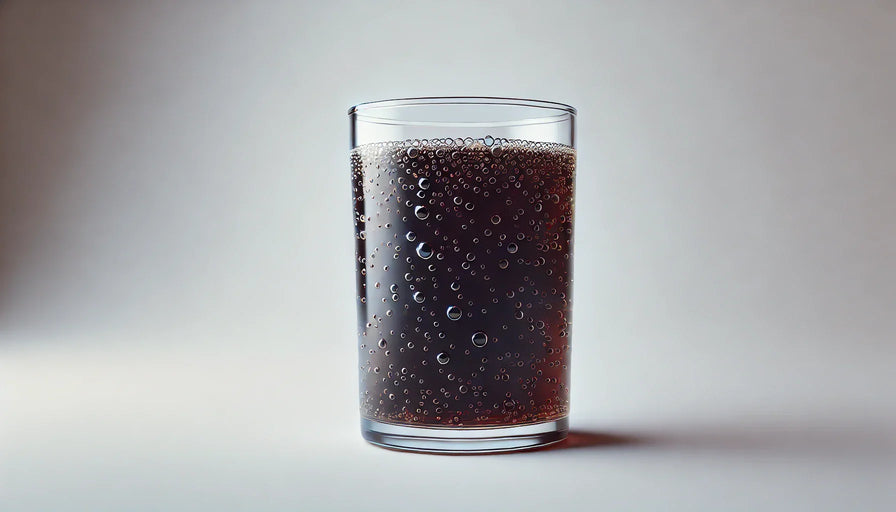
Is it Safe to Drink Distilled Water?

Can you drink distilled water?
Yes, you can drink distilled water. While it is safe to drink, the lack of minerals may make it less beneficial for regular consumption compared to mineral-rich water, according to the World Health Organization.
Water is essential to life, and the type of water we consume can influence our overall health. Among the different types of water, distilled water often raises questions about its safety and suitability for drinking.
This blog will explore the properties of distilled water and address its potential benefits and drawbacks for consumption.
Table of contents
What is distilled water?
Distilled water is purified through a process called distillation, where the water is boiled into vapor and then condensed back into liquid form. This method effectively removes impurities, contaminants, and minerals, resulting in exceptionally pure water free from most dissolved substances.
While distilled water is often used in laboratories and industrial settings, it is also safe for consumption. However, unlike tap or spring water, it lacks the natural minerals that enhance flavor and provide certain nutritional benefits.

Distilled water vs. purified water
The main difference lies in the method of purification and the potential presence of minerals in purified water. Distilled water is water that has been boiled into steam and then condensed back into liquid, removing impurities and minerals.
Purified water, on the other hand, is water that has been filtered or processed to remove impurities but may still contain minerals.
Does distilled water expire?
No, distilled water does not expire, but proper storage is essential to maintain its quality. If stored in a clean, airtight container and kept away from direct sunlight or contaminants, distilled water can remain pure indefinitely.
However, exposure to air can introduce impurities over time, so it is best to use a sealed container to avoid contamination.
What is distilled water used for?
Distilled water is used in a variety of applications due to its high level of purity. Its lack of impurities and minerals makes it suitable for tasks where contamination must be avoided, as well as specific uses in scientific, industrial, and personal contexts.
According to the Environmental Protection Agency (EPA), distilled water is often recommended for uses where clean, mineral-free water is critical.
Common uses of distilled water:
- Medical procedures and equipment
- Laboratory research
- Automotive systems
- Household appliances
- Cosmetic and skincare products
- Drinking water for dietary needs
- Canning and food preservation
How to make distilled water at home
Making distilled water at home is a straightforward process that requires basic equipment and a bit of patience. You will essentially mimic the natural water cycle by heating water to create steam, then cooling the steam to condense it back into liquid, leaving impurities behind. Here are the steps to follow:
- Gather your supplies: You’ll need a large pot with a lid, a smaller heat-safe bowl or container that fits inside the pot, ice cubes, and water.
- Place the smaller bowl inside the large pot, ensuring it’s stable or floats in the center. Add water to the pot, but not enough to submerge the smaller bowl—the bowl will capture the condensed water.
- Cover the pot with the lid, placing it upside down. This setup allows steam to condense and drip into the smaller bowl. Add ice cubes on top of the inverted lid to speed up the condensation process by cooling the steam.
- Turn on the heat and bring the water to a gentle boil. As the water evaporates, impurities are left behind. The rising steam condenses on the underside of the lid and drips into the smaller bowl as distilled water.
- When you’ve collected enough distilled water, turn off the heat. Carefully remove the smaller bowl and transfer the distilled water into a clean, airtight container for storage.
Your distilled water is now ready for use!

FAQs about distilled water
Is distilled water sterile?
No, distilled water is not inherently sterile unless specifically treated to be so. While the distillation process removes most impurities, such as minerals, bacteria, and chemicals, it does not guarantee that all microorganisms are eliminated.
If sterility is required, distilled water must be subjected to additional sterilization methods, such as boiling or using autoclave equipment.

Summary
Distilled water is purified through the removal of impurities and minerals, making it suitable for various applications. While it does not expire if stored properly, exposure to air or contaminants can affect its purity.
Additionally, distilled water is not sterile unless further sterilization methods are applied. Proper handling and storage are essential to maintain its quality and suitability for use.
Recommended reading

How to Give Back During Thanksgiving 2025
Key takeaways Thanksgiving is a time to express gratitude and share with those in need. From volunteering at local shelters to donating food and essentials, there are numerous ways to give back to...

What Does Carbonation Do to Your Body?
What does carbonation do to your body? Carbonation alone typically has minimal effects; however, it can cause bloating and discomfort for some, and it may worsen acid reflux due to carbon dioxide ...

What Are the Health Benefits of Sparkling Water?
Summary Sparkling water isn't just a refreshing drink—it comes with surprising health benefits too. From aiding digestion to improving hydration, discover how sparkling water can be a healthy addi...